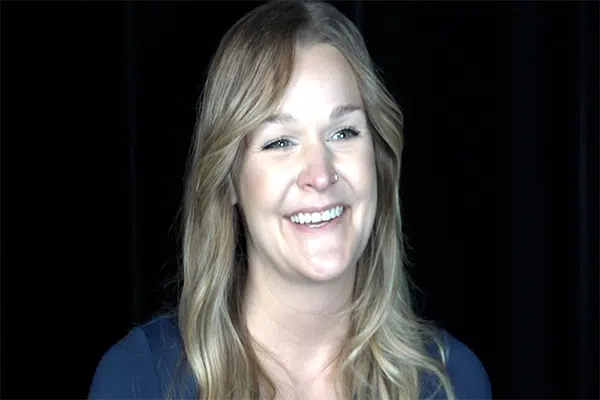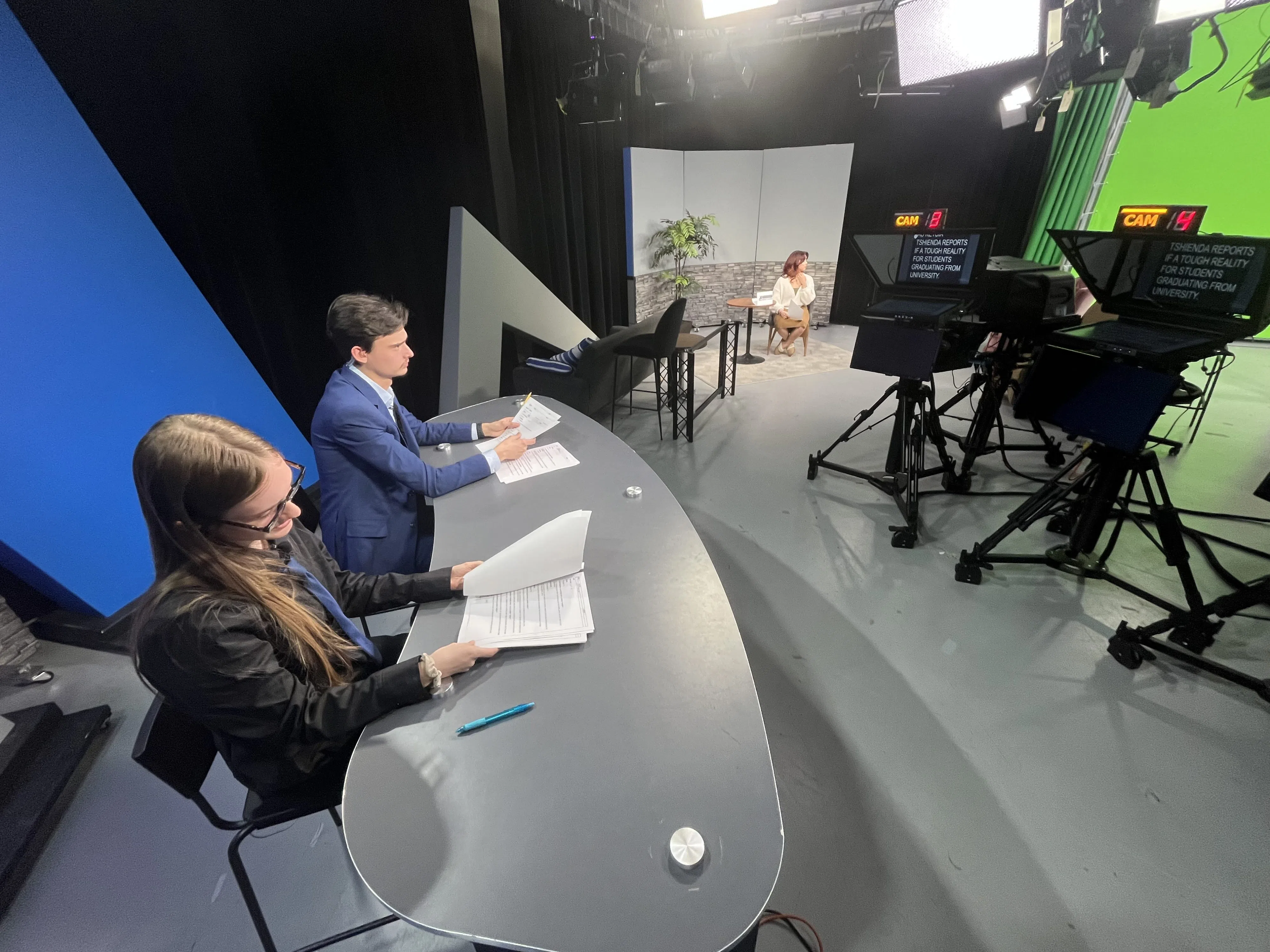
MS Ambassador Spreading Hope (Adam Bukacel, CMRU.ca)
The MS Society is a nation-wide health charity to help and support those diagnosed with multiple sclerosis. Multiple Sclerosis is a disease that attacks the myelin sheath. Think of it this way, a mouse eats on your computer cables and breaks the rubber. Sometimes, that cable just becomes useless, or that cable can kind of send a signal through, or that cable works perfectly fine for a while, but over time more and more problems can pop up. Well, that’s MS, but instead of a mouse, it’s your own immune system, and instead of cables, it’s your nerves in the brain and spinal cord.
That means MS can affect your body in a variety of different ways. MS can disrupt your daily life with chronic head pain, loss of vision, balance, and mobility. MS is actually the leading cause of non-traumatic neurological disability in young adults, disability not suffered through an accident.MS is a scary, scary thing to have because you don’t what’s going to happen, science cannot seem to figure out how, who, what, when, where or why people get MS, and it’s a life changing chronic disease that could literally take your career away, and it can happen at any point in your life.
Yes, MS is very scary, but that is why the MS Society exists. The MS Society offers many programs and services with great individuals behind the scenes making sure newly diagnosed individuals, people that have had MS for 30 years, and everyone in between can get the support they need.
One of those many great individuals is Stephanie Mosher, Community Director of Western Canada for the MS Society.
How does the MS society help those that are diagnosed with multiple sclerosis
Stephanie:
They often contact what is our hub of information called our ‘MS knowledge network’, so then the MS navigator would help that person either for phone, person, or live chat through our website and it’s bilingual, and can help them navigate. They might have some question about next steps, what that means, especially when they are newly diagnosed. That’s a really scary time right and you don’t want to using the internet to google what’s going to happen. So, the knowledge network is a great frontline resource. We are also creating something called a newly diagnosed kit and we are working with the MS clinic across the country to send those out. So that will be an information package for people that are newly diagnosed. We also, even in this virtual world that we all are working in, we run a newly diagnosed education session, and I believe right now we are running that twice a year, and that’s a great way to talk to…experts to hear more about living with MS. And finally, there’s a number of different programs and services that we run, not for newly diagnosed but for individuals living with MS, and even for people affected with MS like their family, a care giver for example. There’s a yoga program, a physio program, lots of different education sessions or opportunities for the community to connect with researchers and hear more about the research we are doing
How does the MS Society support younger adults newly diagnosed, to help them get through the first 5 years of what’s probably the more difficult time of their diagnosis?
Stephanie:
That is something that we have really started to focus on is young adults living with MS, and I would say young adults for us we would classify as under 40. MS is commonly diagnosed between 20-49, so it really is in the prime years of an individual’s life where they are navigating their career, or finishing university, or starting a family. It’s just such a critical time in someone’s life where diagnosis like this can really change everything for them. So, we are really focusing on how we can support those individuals, there’s a number of now virtual support groups across the country, and one specifically for young adults.
The MS Society also helps to produce a lot of research in regards to MS. Where do you see the research going from here?
Stephanie:
One of the most exciting areas we are looking at is wellness and MS. If you were diagnosed 20 years ago, you might have been told to go home, to rest, and to not exercise and not to move your body. And not we are finding so much research that actually says, ‘No. even if you only move your body in your chair, and you only do a chair exercise that can help. It is so much more about the over arching picture of mental health and all of those other pieces, not just necessarily a cure or halting [the MS] progression, it’s about the whole wellness picture, which is exciting.
What is a tool that the MS society Provides
One of the programs the MS Society uses to support is the MS Ambassador program. Melyssa Roedel has MS and volunteers as an MS Ambassador. She tells her story about how the MS Society helped her with dealing with MS, how she helps as an MS Ambassador, and advice for younger adults.
Visit the MS Society for more information
Personal Reflection
This story was quite personal for me. MY father has been struggling with MS for 20+ years, and we personally have used the MS society for support. At the start, my parents were doing financially well, we had all the things needed, and we could do all the things we wanted. We raced cars, we played sports, we travelled to BC all the time, it was fun and we thought we can “beat” the disease. Unfortunately, good times only last for so long. I won’t get into details but it was not pretty in my teens and my early adult years. MS took a lot out of my father, mentally, physically, and emotionally. It was the catalyst for his depression, and the catalyst for my parent’s divorce. This is why I wanted to show people with MS that there is help, and there is hope for dealing with this disease.
I wanted to show that not only does MS affect young people, but can really steer your life in all sorts of directions. It can make things harder, it can make things challenging, and it can put you somewhere you never wanted. But with proper support, MS can be dealt with, and the MS Society is one of the best supports you can ask for. I want to tell people with MS that you can beat the unbeatable. I want to tell people there is hope, that you can act, and you can live the life you want and deserve, even with MS.



Comments